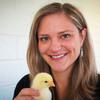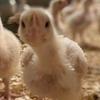Broiler Welfare Assurance Programs in the United States
Published: August 19, 2022
Source : Jaelen Cherry, University of Maryland; Dr. Shawna Weimer, University of Maryland. Reviewers: Dr. Prafulla Regmi, University of Georgia; Dr. Leonie Jacobs, Virginia Tech; Dr. Marisa Erasmus, Purdue University.

Broiler welfare assurance programs specify the standards that producers must follow to sell their broilers, receive a premium, and/or a certification label on their products. Broiler assurance programs differ in the guidelines and audit standards that producers must follow because the missions and goals of each organization influence the standards within audit criteria. This newsletter describes the history and mission of organizations with broiler welfare standards, including the National Chicken Council (NCC), American Humane Certified (AHC), Global Animal Partnership (GAP), Certified Humane Raised and Handled (CHRH), Farm Animal Care Training and Auditing (FACTA), Food Alliance Certified (FAC), and Animal Welfare Approved (AWA). The standards highlighted from each organization are examples of standards and audit criteria provided on each organization's webpage.

Welfare Assurance Programs
National Chicken Council (NCC)
The National Chicken Council (NCC) was founded in 1954 and was called the National Broiler Council (NBC) until 1999 when NBC changed its name to the National Chicken Council (NCC). NBC relocated to Washington DC in 1962, where they began lobbying for the broiler industry with congress, with this work continuing today. The NCC represents companies that account for approximately 95% of all broiler production within the United States, including Cobb-Vantress, Aviagen, Tyson Foods, Mountaire Corp, and more. The NCC welfare and management standards are viewed as the industry standard in broiler production within the United States and are conducted by third-party auditors every two years. Audits may also be conducted internally utilizing NCC members.
Mission:
- Influence legislative and regulatory policies for broiler chickens
- Discuss broiler chicken issues and standards with legislative bodies and media
- Promote and protect the reputation and standards of the poultry industry

American Humane Certified Program
American Humane Certified (AHC) is a welfare assurance program created by the American Humane Association (AHC) in 2000. AHA works closely with their scientific advisory board composed of leading industry experts to compile the standards producers must follow. The AHC bases its animal welfare standards on the Five Freedoms of Animal Welfare. Audits are conducted by third-party auditors provided with AHC standards annually. Additionally, audits may be announced or unannounced at the discretion of AHC.
Mission:
- Ensure safety, welfare, and well-being of broilers
- Offer leadership programs to promote nurturing bonds between animals and humans

Global Animal Partnership Program
Whole Foods created the Global Animal Partnership (GAP) in 2008. The GAP program utilizes a step-based system, requiring increased animal welfare benefits to broilers as producers progress to the next step (i.e., access to outdoors, enrichments, etc.). Producers also benefit from higher accredited labels from GAP on their packaging and monetary compensation. The GAP program utilizes third-party auditors, conducting audits every 15 months, allowing for assessments in different seasons.
Mission:
- Improve animal welfare throughout the supply chain for animal-derived products
- To promote science-based management while also allowing for natural behaviors to be expressed by animals
- Transparent labeling for consumers to make informed decisions on what animal products they are buying and the treatment animals received under that label
Step1. No cages permitted. Stocking density < 6 feet sq. Stationary housing.
Step2. Indoor housing. Minimum of two types of enrichments included.
Step3. Seasonal outdoor access. Pasture not required.
Step4. Broilers raised on pasture. May be housed indoors during the winter.
Step5. Broilers live on pasture except in cases of extreme weather conditions.
Step5+. Broilers must be slaughtered on-farm

Certified Humane Raised & Handled Program
Certified Humane Raised and Handled (CHRH) was created by Humane Farm Animal Care (HFAC) in 2003. The HFAC is a registered 501(c) 3 nonprofit organization that acts internationally as a welfare assurance program. Audits conducted by CHRH are based on CHRH standards which stem from the guidance of a 40 member scientific committee. This committee comprises experts and veterinarians from the US, Canada, Europe, and South America. The CHRH program conducts audits annually, where audits may be announced or unannounced to producers.
Mission:
- Improve the lives of farm animals from birth to slaughter
- Allow for farm animals to exhibit natural behaviors during production

Animal Welfare Approved Program
Animal Welfare Approved (AWA) is a welfare assurance program that was created by the Animal Welfare Institute in 2006. Later in 2014, the Animal Welfare Insititute permitted A Greener World to use the AWA label as their own. AWA uses approved standards from A Greener World, which are backed by veterinarians, scientists, and experts in agriculture across the world. A Greener World standards promote access to outdoors, sustainable agriculture, no body modifications, and more. The AWA program utilizes third-party auditors, with audits conducted annually. These audits are may be announced or unannounced to producers.
Mission:
- Identify and promote agriculture systems that positively impact society, animals, and the environment
- Educate consumers of agricultural factors
- Support independent farmers committed to sustainable livestock production

Food Alliance Certified Program
Food Alliance Certified (FAC) is a welfare assurance program created by Food Alliance in 1998. Food Alliance is an independent non-profit organization founded in 1997, which grew from a project started by Oregon State University, Washington State University, and the Washington State Department of Agriculture. The FAC audit follows a level-based system, where each level requires producers to add additional management practices and welfare benefits for their flocks (i.e. enrichments, decreased stocking densities, etc.) The FAC program uses third-party auditors, with audits conducted annually. These audits are also announced prior to the start of the audit to producers. The FAC program uses their audits are to promote more sustainable agriculture practices from producers.
Mission:
- Promote sustainable agriculture through scientific, business-oriented, and humane means
- Ensure safe working conditions for producers
- Ensure the humane treatment of animals
- Protect ecosystems affected by agriculture

Farm Animal Care Training and Auditing Program
Farm Animal Care, Training, and Auditing (FACTA) is a certification organization owned by Frost PLLC, a leading accounting firm focused on agriculture. FACTA utilizes third-party audits, with auditors certified under the Professional Animal Auditor Certification Organization (PAACO). Audits by FACTA are conducted annually and are announced before the producers on the broiler operation. The FACTA program offers four tiers of audits:
· Tier 1 audits an already established animal welfare program
· Tier 2 audits using national industry standards (i.e., NCC standards)
· Tier 3 audits are reviewed by a scientific committee and auditors
· Tier 4 audits risk a producer's animal welfare practices pose to the business, consumers, and reputation.
Mission:
- Implement socially responsible on-farm policies to protect livestock, the brand, and profits in an economically sensible manner
- Remain ahead of current animal welfare standards

This article was originally published on Poultry Extension Collaborative (PEC) and it is reproduced here with permission from the authors.
National Chicken Council (NCC) Website: https://www.nationalchickencouncil.org/
American Humane Certified (AHC) Website: http://www.humaneheartland.org/our-farm-programs/american-humane-certified
Global Animal Partnership (GAP) Website: https://globalanimalpartnership.org/
Certified Humane Raised & Handled (CHRH) Website: https://certifiedhumane.org/
Farm Animal Training and Auditing (FACTA) Website: https://factallc.com/
Food Alliance Certified (FAC) Website: http://foodalliance.org/operations/
Animal Welfare Approved (AWA) Website: https://agreenerworld.org/certifications/animal-welfare-approved/
Related topics:
Authors:
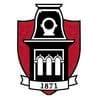

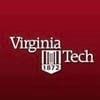
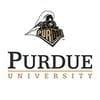
Show more
Recommend
Comment
Share

Would you like to discuss another topic? Create a new post to engage with experts in the community.
